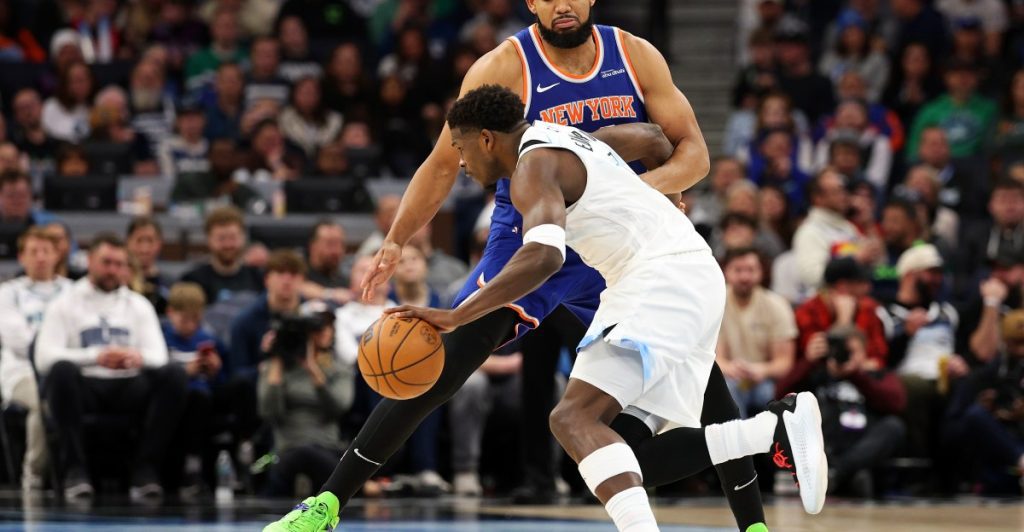It has been a year and a week since Karl-Anthony Towns exchanged his winter gear for the bright lights of Broadway. One year since the Timberwolves and Knicks stunned the league with the trade that sent KAT to New York in return for Julius Randle, Donte DiVincenzo, and the draft pick that led to rookie Joan Beringer. One year since Minnesota fans pondered whether they had just let go of their franchise centerpiece or narrowly escaped a salary-cap crisis.
Now, the much-anticipated reunion is upon us: Wolves vs. Knicks. Towns facing his former team, and Randle seeking revenge. A seemingly insignificant preseason matchup… but it carries weight.
The Trade that Made Waves
Flashback to October 2024: The Wolves were on the rise but ensnared in a financial maze known as the second apron. Tim Connelly foresaw the impending crisis. Towns’ contract was a luxury-tax landmine, and retaining him alongside Rudy Gobert, Anthony Edwards, and the rest of the core could have pushed Minnesota into a perilous financial situation.
Connelly made the bold decision to reach out to the Knicks.
Fans were heartbroken. It’s not everyday you move on from a decade-long franchise icon. Yet, remarkably, both teams benefited from the trade.
A Year Later: Success for All
The Wolves remained competitive. After a season flirtation with the play-in, they secured a second consecutive trip to the Western Conference Finals. Anthony Edwards improved, Gobert remained healthy, and Julius Randle found his groove as Minnesota’s number two.
The Knicks also reached the Conference Finals, but faced defeat against the formidable Tyrese Haliburton and the Pacers.
There’s a fascinating “what if”: had both teams won just one more series, we might have witnessed a Timberwolves vs. Knicks showdown in the 2025 NBA Finals. Can you imagine the chaos?
While this preseason game doesn’t count, it feels like a hint of what could come in June 2026.
It’s Wolves vs. Knicks, one year later. A reunion, a “what if,” and a sprinkle of nostalgia laden with future Finals promise. It may not influence the standings, but it holds significance in ways that matter: pride, vindication, and healthy competition.



